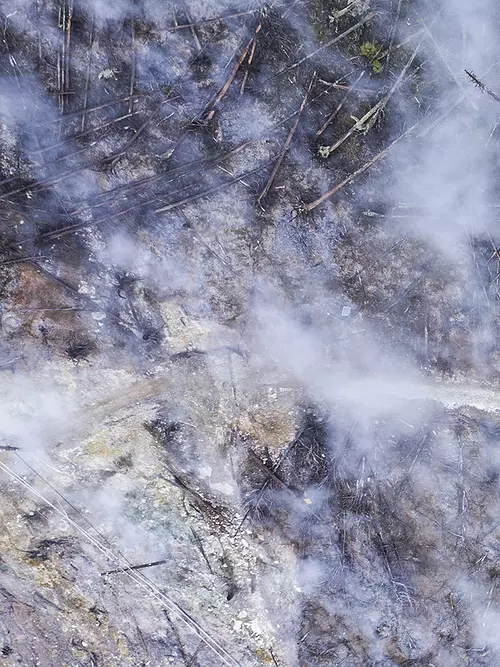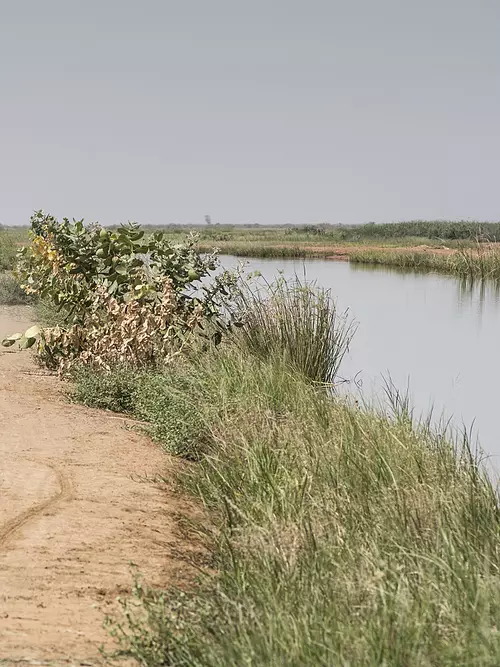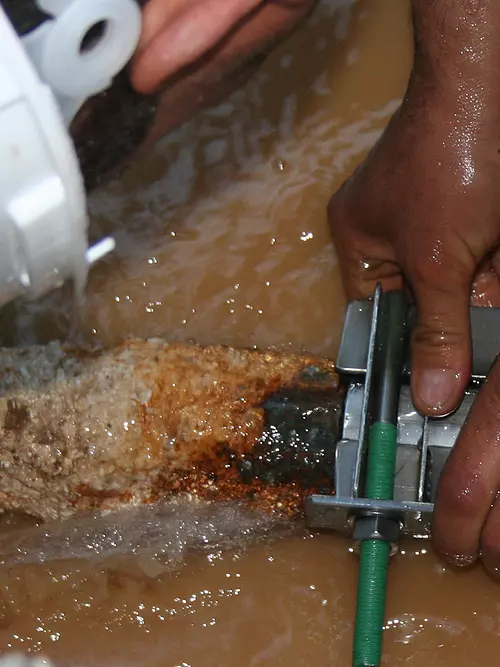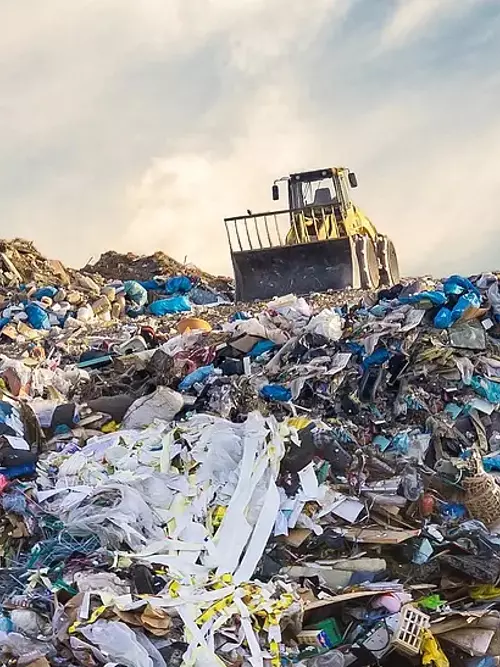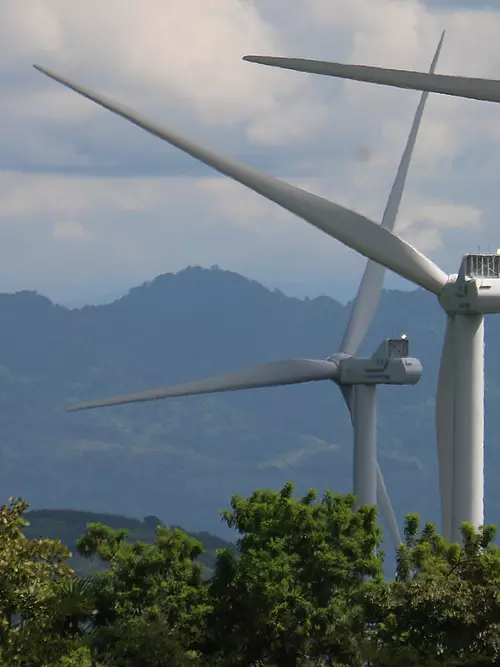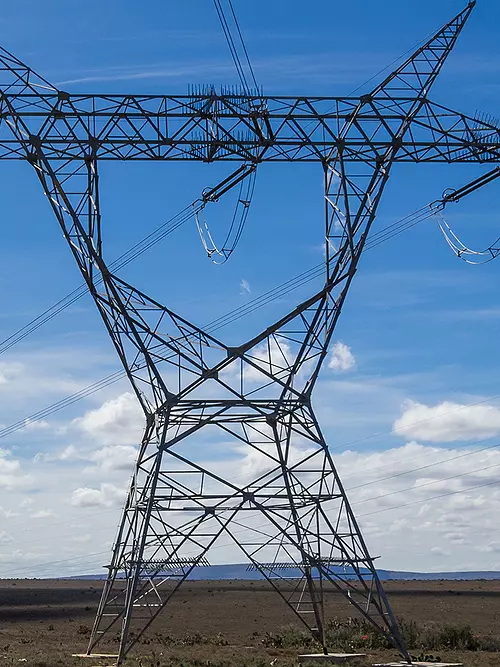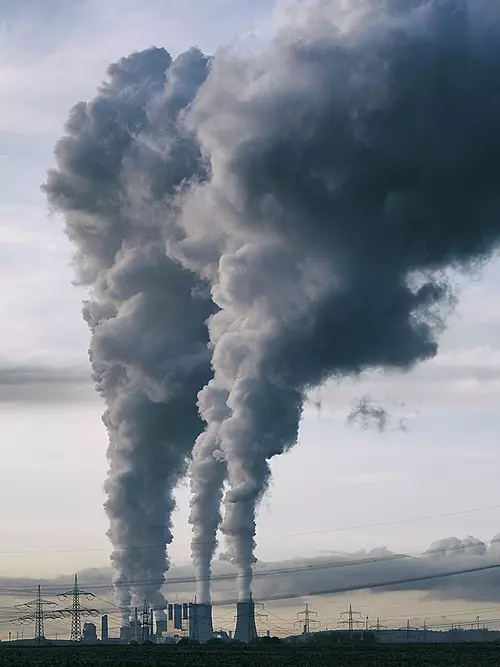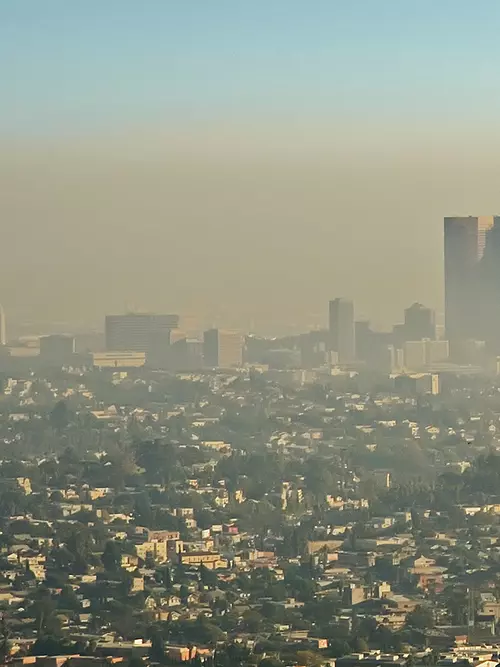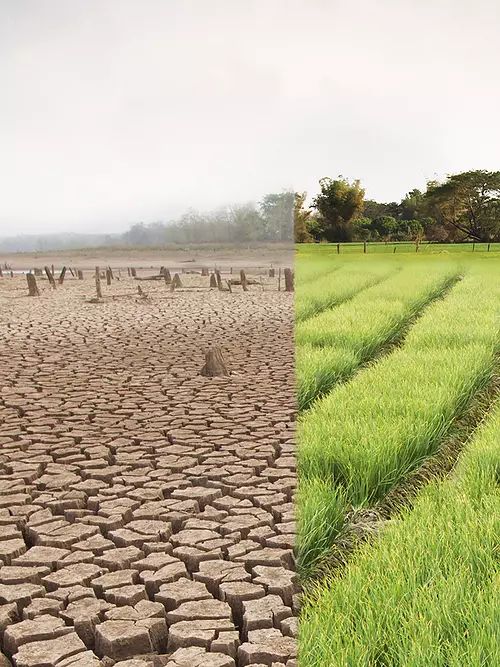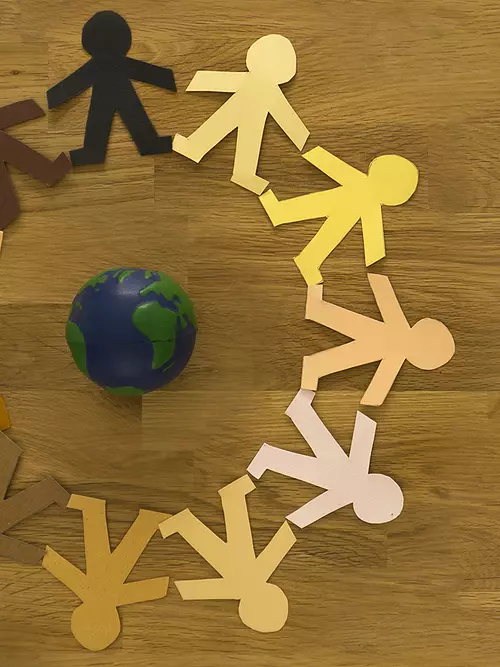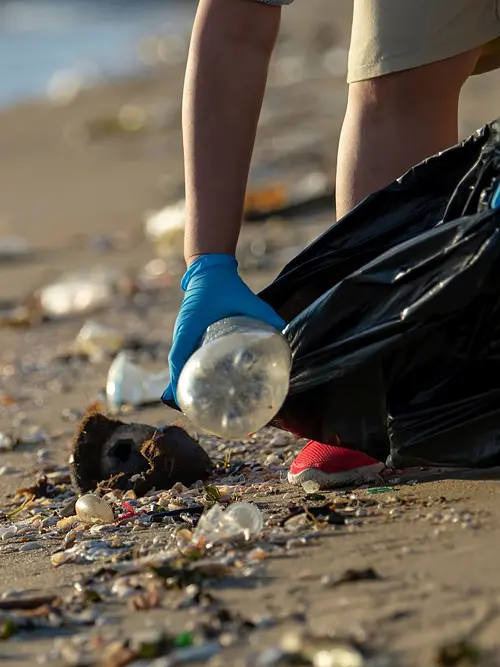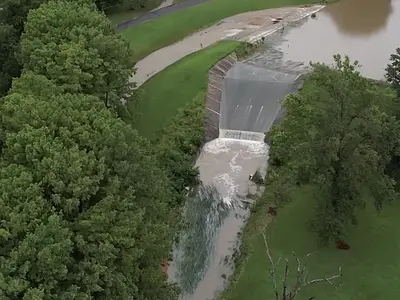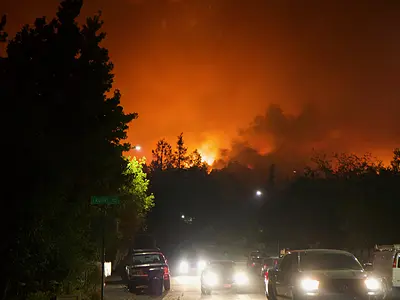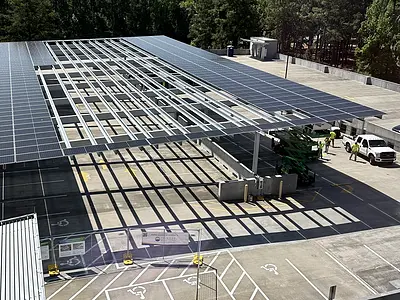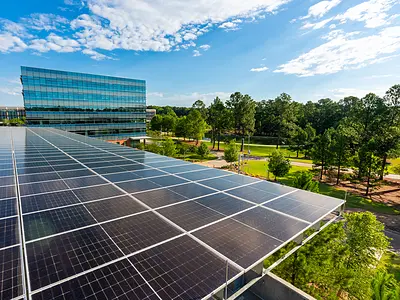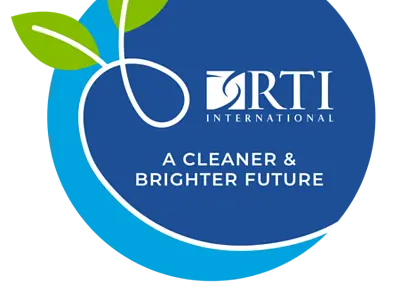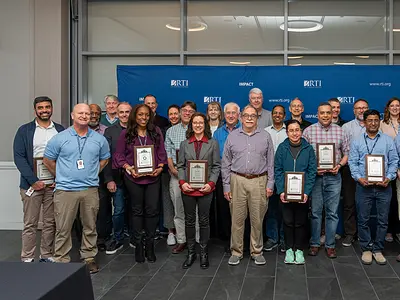The climate is changing but there is still time to act.
We believe in securing a sustainable future for all life on our planet.
Actions must be grounded in science, informed by data, and supported by implementable and attainable solutions.
RTI brings expertise in research, technology development, and implementation to tackle the full spectrum of climate challenges in pursuit of a more sustainable and equitable future.
Download our brochure and check out our webinar series to see how we are driving real change in industries and sectors impacted by climate change.
Latest News and Insights
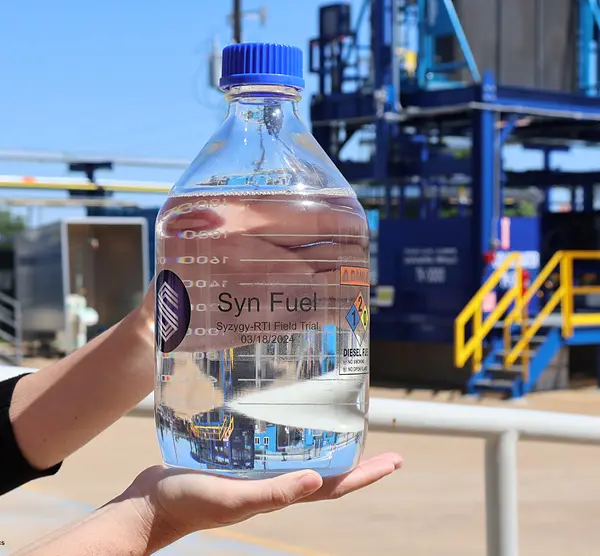
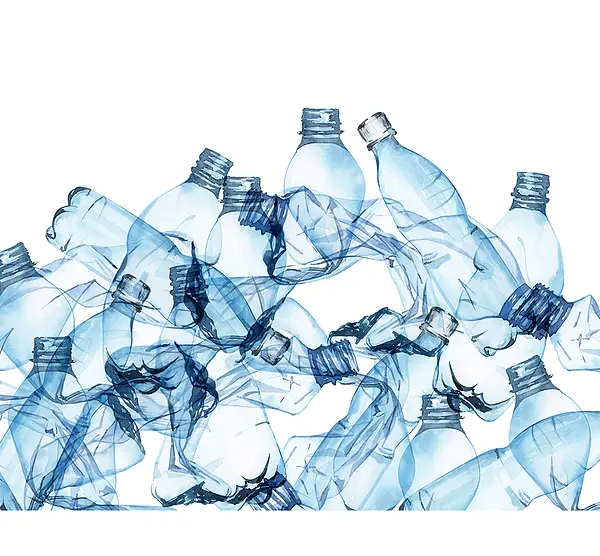
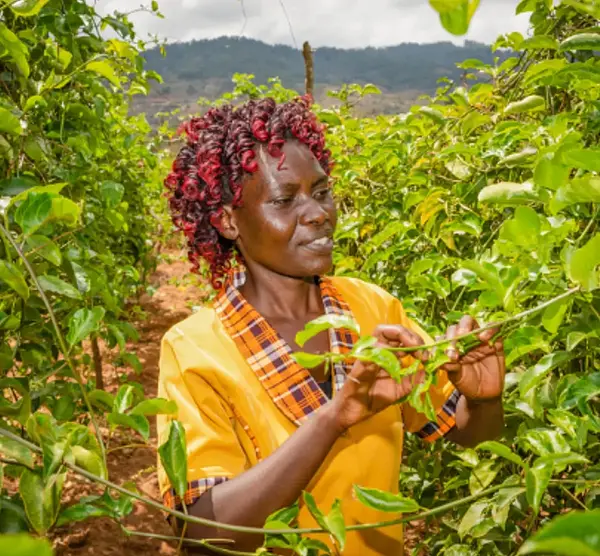

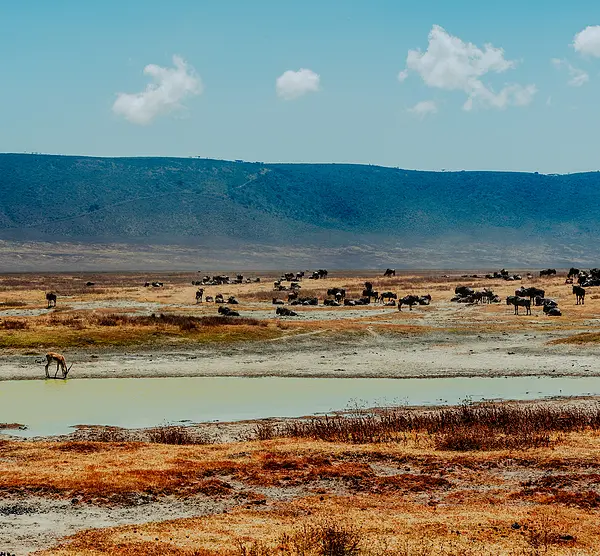

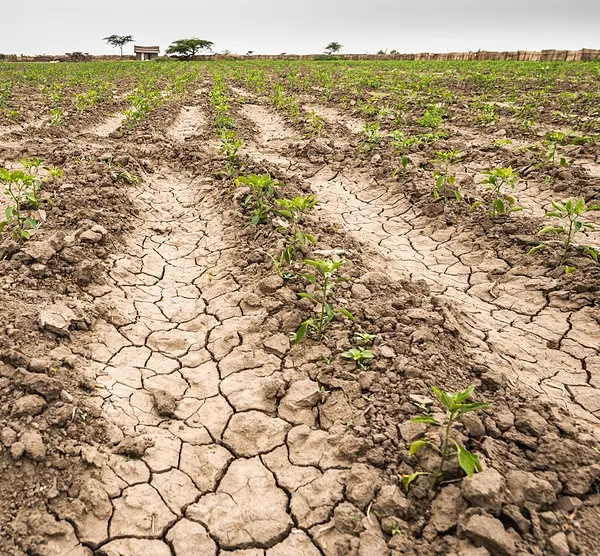
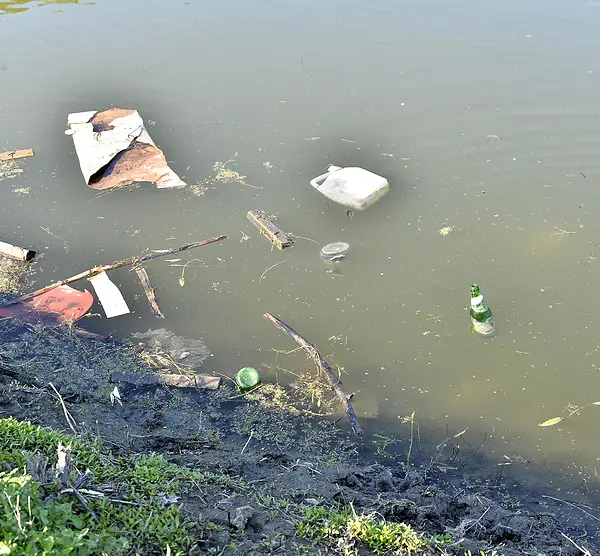
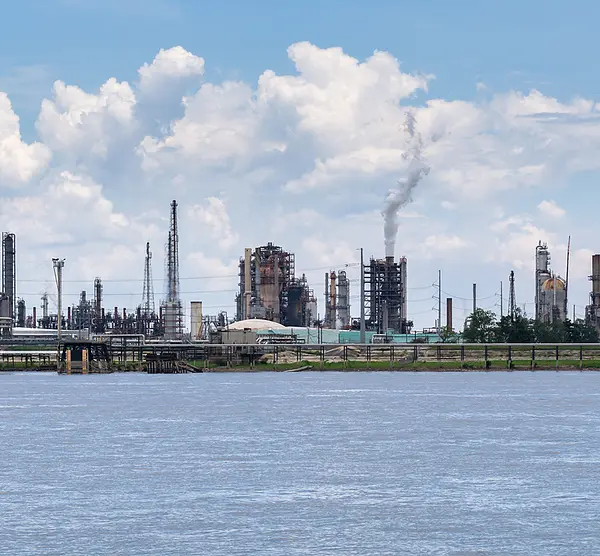
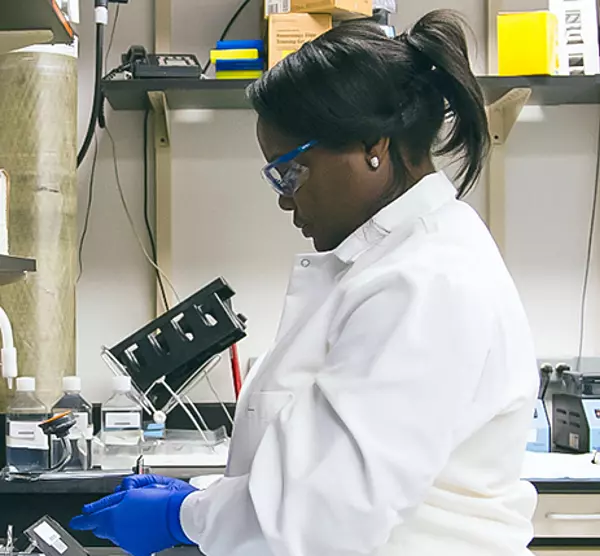
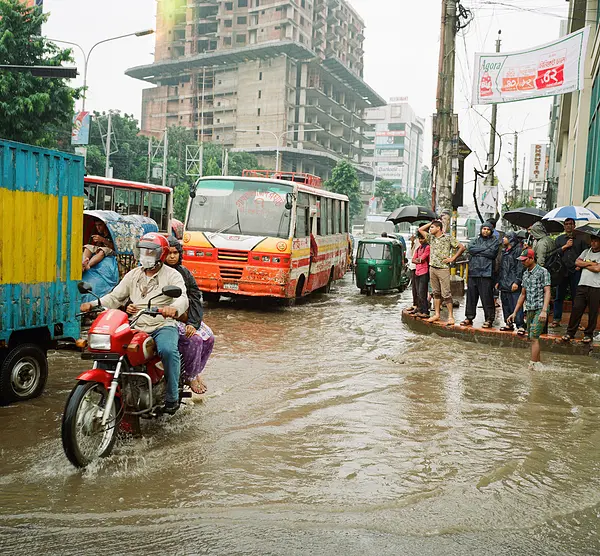
RTI & Syzygy Plasmonics demonstrate groundbreaking GHG-to-jet fuel solution
Learn how the teams successfully demonstrated an all-electric CO₂-to-Fuel production pathway and ways the new technology can significantly decarbonize transportation.
Circular Economy Offers Solutions to Plastic and Climate Crises
RTI sustainability experts explore the definition of a circular economy and the roles that government, consumers, and industry can play in facilitating the transition.
On-Demand: Nutrition-Climate Virtual Learning Event
View the recording of our virtual event on the nutrition-climate nexus. Understand how climate change impacts nutrition, from reducing food availability to changing the concentration of essential micronutrients in our crops.
Could Forever Become Finite? US Regulations Emerge, Addressing PFAS in Water Supply
The U.S. EPA finalized its first ever regulation for six PFAS compounds in drinking water. What’s new about the regulation? How does it affect what’s flowing at your tap? And what more can be done to reduce PFAS exposures?
The Twin Crises of Climate Change and Biodiversity Loss
You’ve heard of the climate crisis, but have you heard of the biodiversity crisis? The two are inextricably linked. The good news is that solutions to address one crisis can help alleviate the other.
How We Can Achieve a Nature Positive Future
Nature-positive approaches are gaining momentum across governments, businesses, and beyond. Our experts share insights into why nature positivity matters for economic prosperity, biodiversity conservation, and addressing climate change.
Integrating Climate Risk into Global Agri-Food System Decision-Making
This free, publicly available database helps decision-makers at the nexus of climate and the food system support small-scale producers in climate smart ways.
Modernizing Water Regulations to Address Contaminants
New and emerging contaminants are being found in our water like PFAS, pharmaceuticals, and microplastics. Modernizing domestic water regulations could help address associated health risks and implications.
Department of Energy Selects RTI to Lead First-of-Its-Kind Carbon Capture Project
The U.S. DOE Office of Clean Energy Demonstrations (OCED) announced up to $304 million in funding for four projects to pilot transformational technologies designed to capture carbon dioxide (CO2). RTI was selected for award negotiations to lead the carbon capture pilot in Mississippi in collaboration with International Paper (IP), SLB and Amazon.
Technology Advancement and Commercialization Laboratories
Researchers in our laboratories use cutting edge technology to solve a wide range of challenges in the fields of human health, energy, and the environment. See how state-of-the-art equipment facilitates our engineering innovations in carbon capture, emerging public health threats, and more.
3 Key Ways to Improve Disaster Risk Reduction in Cities
Rapid urbanization and climate change are making disasters more common, intense, and costly for cities, which are already home to over half of the world’s population. Learn about three key areas to improve disaster preparedness and response.
Adaptation and Resilience
Developing evidence-based adaptation strategies and solutions to inform policy and build local capacity
Mitigation
Reducing GHG emissions and prioritizing renewable energy through research, technology, and implementation
Cross-sectoral
Taking a holistic approach to address the full spectrum of climate challenges
Fresh Perspectives on Sustainable Solutions
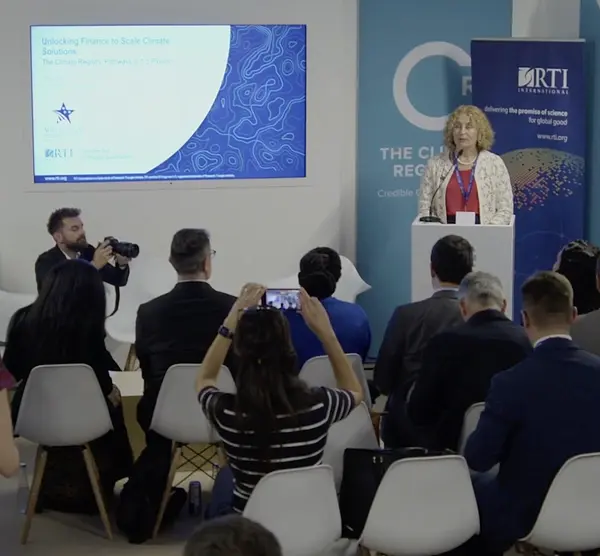
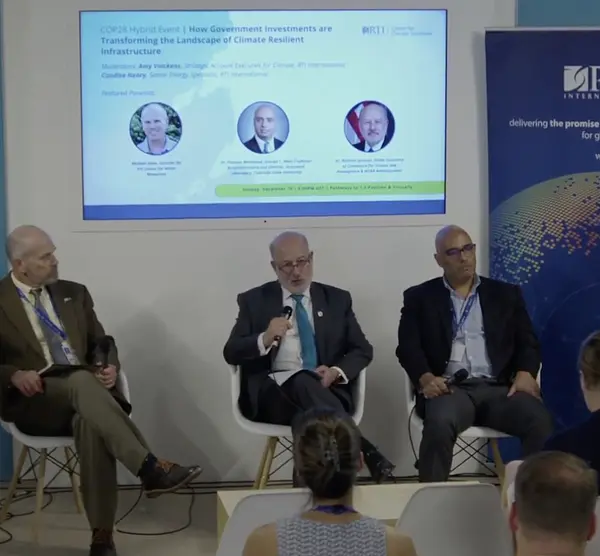
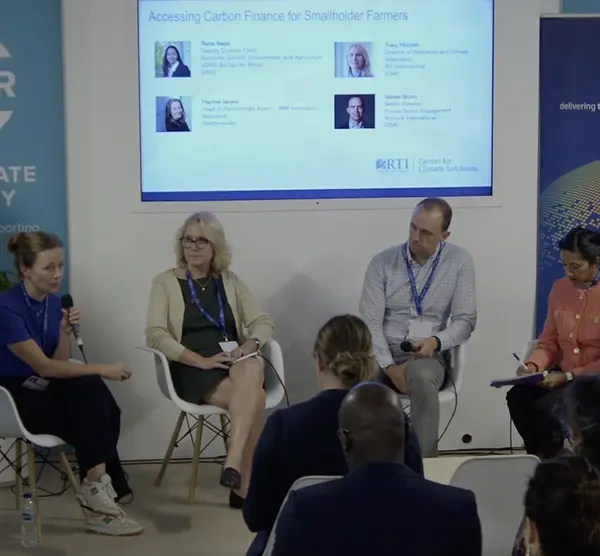
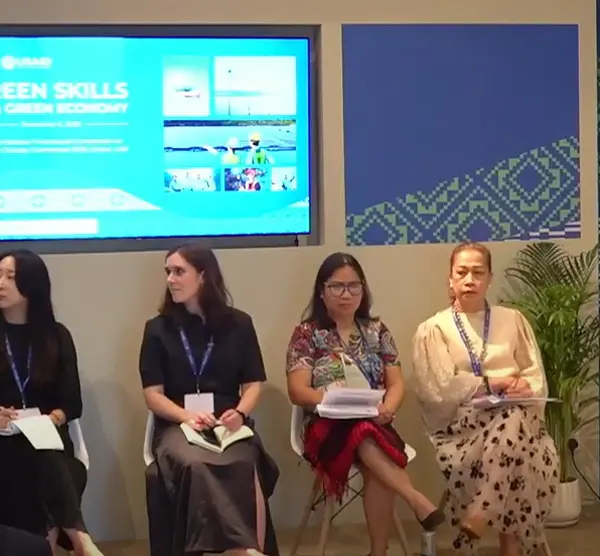
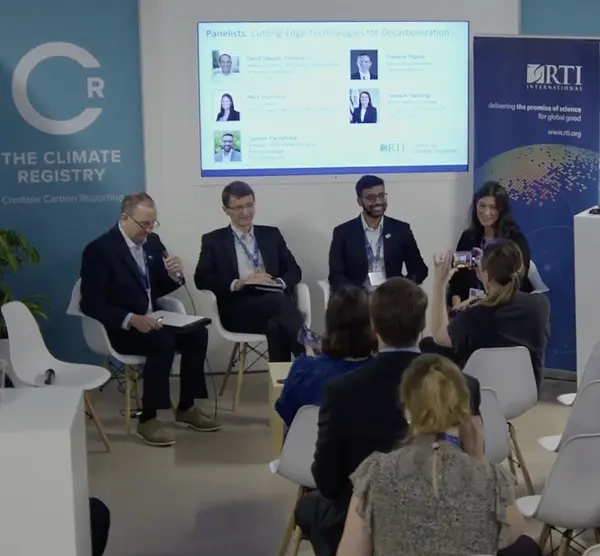
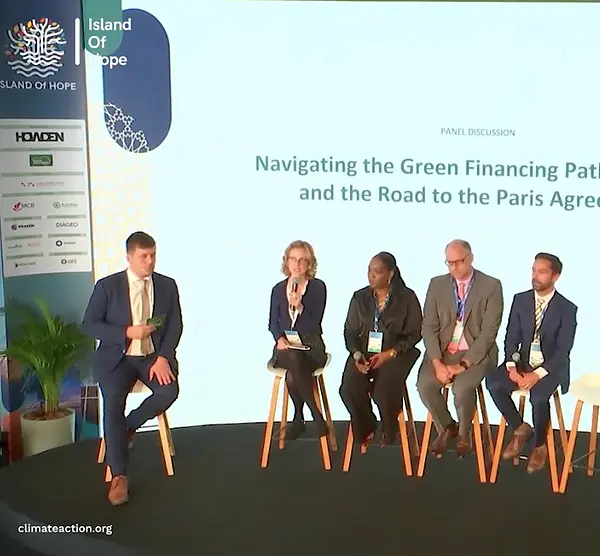
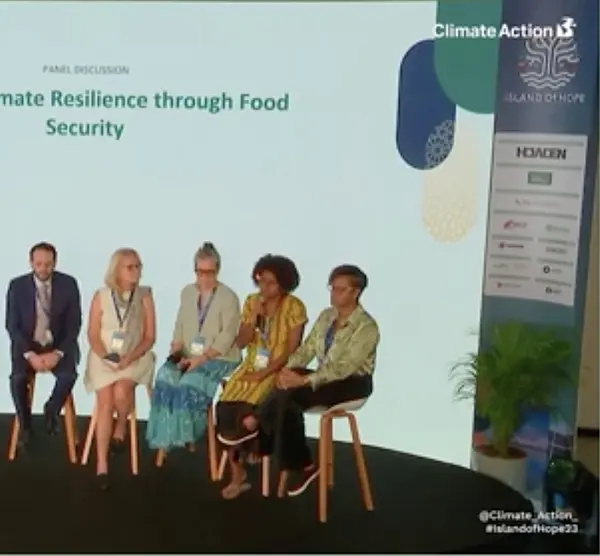
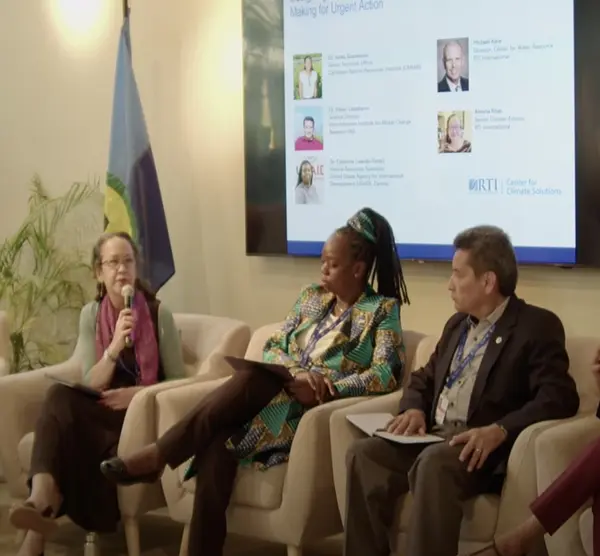
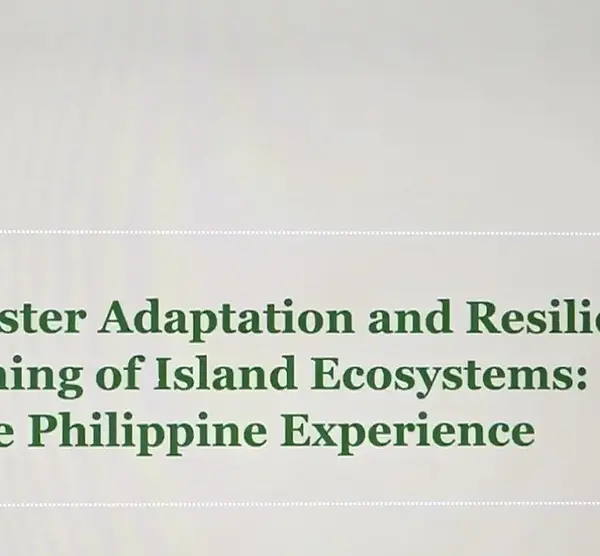
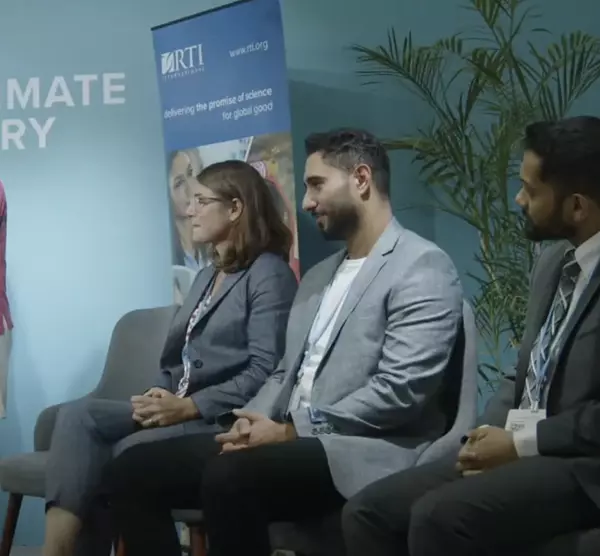
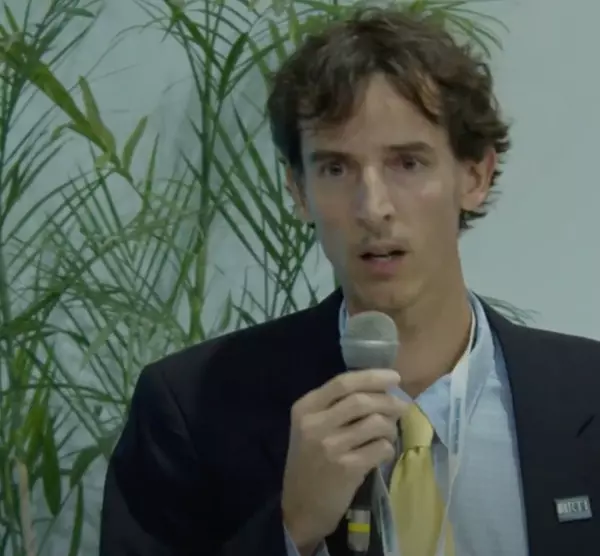
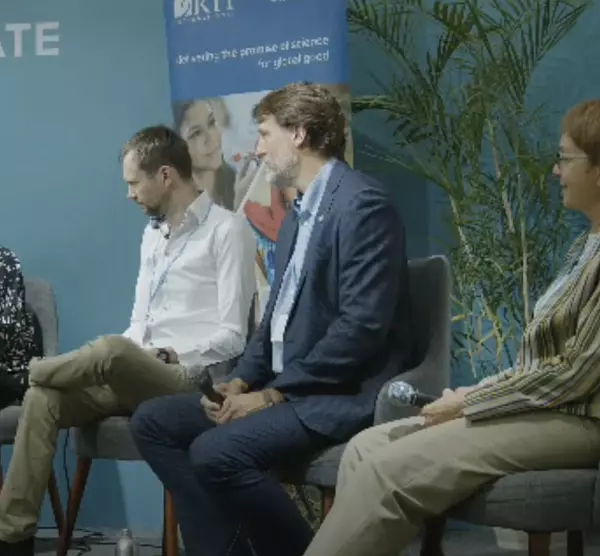
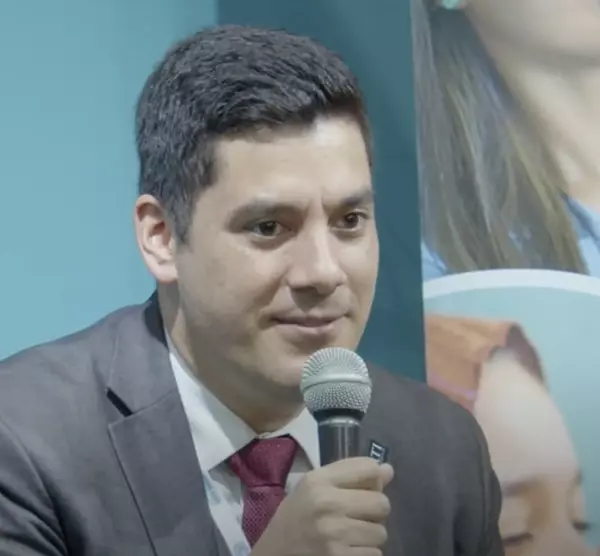
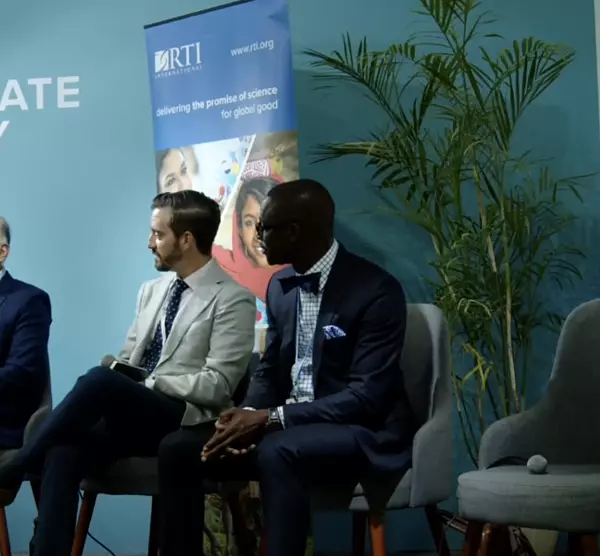
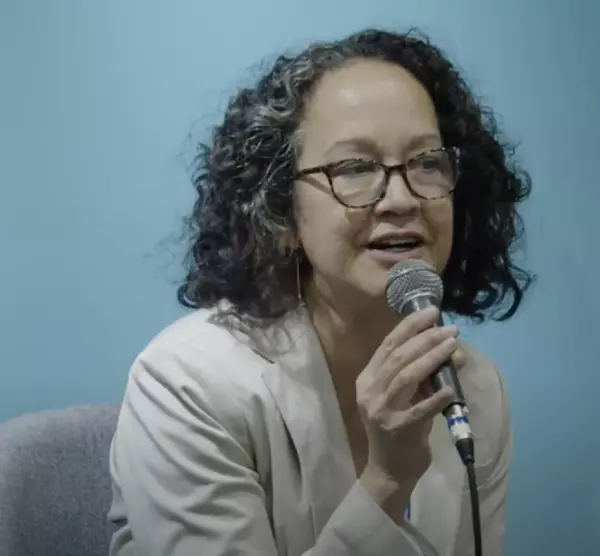
Unlocking Finance to Scale Climate Solutions | COP28
How Government Investments are Transforming the Landscape of Climate Resilient Infrastructure | COP28
Enabling Smallholder Farmers to Leverage Carbon Markets at Scale | COP28
Green Skills for a Green Economy: Just Transitioning to a Low Carbon Energy Sector | COP28
Implementing Cutting-Edge Technologies to Decarbonize Hard-to-Abate Industrial Sectors | COP28
Navigating the Green Finance Pathways: SIDS and the Road to the Paris Agreement | COP28
Building Climate Resilience Through Food Security | COP28
Designing Your Nature-Based Solutions: Data-Driven Decision Making for Urgent Action | COP28
Post-Disaster Adaptation & Resilience Planning of Island Ecosystems
Leveraging Market Systems to Spur Climate Adaptation | COP27
Visualizing the Impacts of Climate Finance | COP27
Understanding Climate Change Impacts on Social Determinants of Health | COP27
Evidence-based Approaches to Biodiversity Conservation | COP27
How Do We Achieve a Just Energy Transition in a Decarbonizing Economy | COP27
Essential Data for Urban Resilience | COP27
Sign up for our Climate Newsletter to stay up-to-date on our latest insights
Meet the Experts
View All Experts
Robyn Camp

Amy Volckens
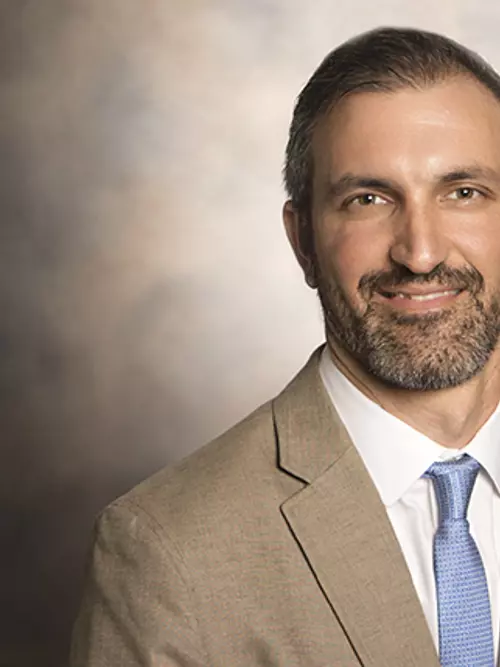
Daniel Lapidus

David Dausch

Aleisha Khan
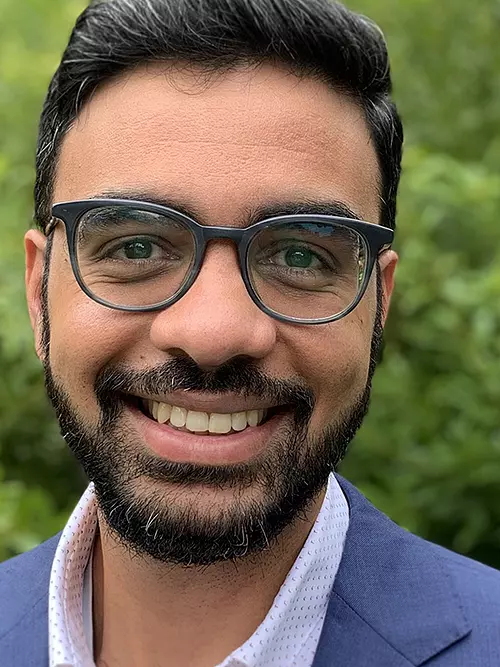
Sameer Parvathikar

Candise Henry

Diane Bridger
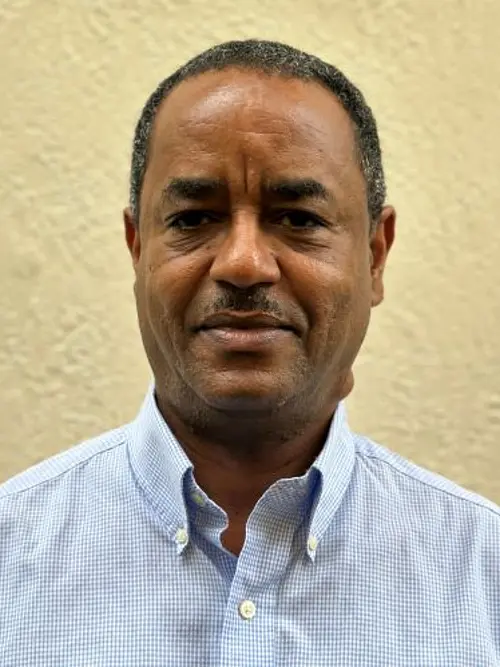
Petros B. Aklil

Ki Young Cha

Tom Bishop

Marlito Guidote

Zubair Fattahi

Paul Jeffery

Bruce Corbet

Charly De la Rosa

Victoria Sankovich Bahls

Jennifer Hoponick Redmon

Ria Govender
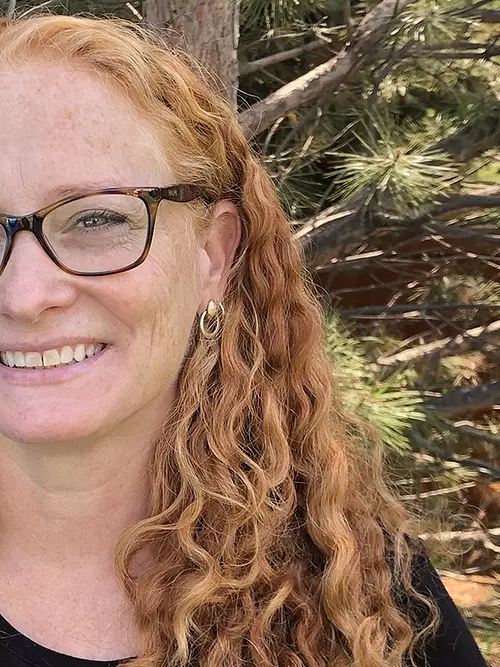
Debbie Martin

Abdishakur Ahmed
Related Projects
Identifying Risks of Climate Change on a Community Level
Read More about Identifying Risks of Climate Change on a Community Level

